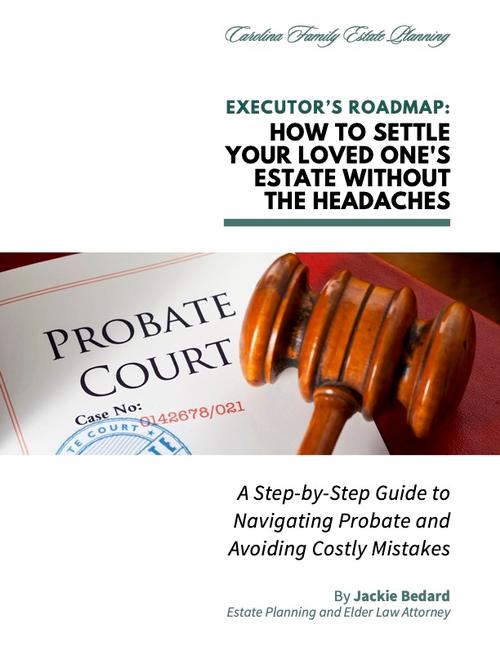 During the probate process in North Carolina, the executor will be reimbursed for legitimate out-of-pocket expenses resulting from the probate process and the management and administration of the deceased’s estate.
During the probate process in North Carolina, the executor will be reimbursed for legitimate out-of-pocket expenses resulting from the probate process and the management and administration of the deceased’s estate.
Unless the Will provides otherwise, under North Carolina law, Executors or Administrators may claim a commission of up to 5% of the Estate assets and receipts, as approved by the Clerk of Court.
Trusts should provide specific guidance regarding compensation. Frequently, the Trust might state that the Trustee is entitled to “reasonable compensation” for their work in serving as Trustee. If the Trust does not provide any instruction regarding compensation, then the North Carolina Uniform Trust Code provides guidance regarding trustee compensation and reimbursement of expenses.
A Few Caveats to Being Paid as an Executor
It is important to understand that any such commission or compensation received is taxable income to you and that you will be required to report it on your personal tax return.
If you hire a professional to complete most of the work, then it may not be appropriate for you to claim a commission or compensation, or at the very least, the amount of such commission or compensation should be reduced accordingly.
Given that;
- Most Executors or Trustees are family members and are also Beneficiaries of the Estate,
- Most Executors or Trustees hire professional legal assistance and
- Any such commission or compensation must be reported as taxable income; we find that many Executors or Trustees opt to waive commission or compensation.
However, each situation is unique. Your experienced attorney can provide you with guidance as to whether it may be prudent to claim a commission or compensation.

